Publikace
> Články v impaktovaných časopisech
> 'Data processing and image reconstruction methods for pixel detectors'
Data processing and image reconstruction methods for pixel detectors
Autor
Rok
2007
Časopis
NIM A 576 (2007) 223-234, doi:10.1016/j.nima.2007.01.157
Web
Obsah
Semiconductor single particle counting pixel detectors offer many advantages for radiation imaging: high detection efficiency, energy discrimination, noiseless digital integration (counting), high frame rate and virtually unlimited dynamic range. All these properties allow to achieve high quality images. Examples of transmission images and 3D tomographic reconstruction using X-rays and slow neutrons are presented demonstrating effects that can affect the quality of images. A number of obstacles can limit detector performance if not handled. The pixel detector is in fact an array of individual detectors (pixels), each of them has its own efficiency, energy calibration and also noise. The common effort is to make all these parameters uniform for all pixels. However, an ideal uniformity can be never reached. Moreover, it is often seen that the signal in one pixel affects neighboring pixels due to various reasons (charge sharing, crosstalk ...). All such effects have to be taken into account during data processing to avoid false data interpretation. The main intention of this contribution is to summarize techniques of data processing and image correction to eliminate residual drawbacks of pixel detectors. It is shown how to extend these methods to handle further physical effects such as hardening of the beam and edge enhancement by deflection. Besides, more advanced methods of data processing such as tomographic 3D reconstruction are discussed. All methods are demonstrated on real experiments from biology and material science performed mostly with the Medipix2 pixel device. A brief view to the future of pixel detectors and their applications including also spectroscopy and particle tracking is given too.
Granty
Projekty
Medipix
USB interface for Medipix detectors
Pixelman: Software package for Medipix detectors
Zobrazování biologických vzorků pomocí rentgenového záření
Rentgenová absorpční a fázová radiografie a tomografie
Neutronová radiografie
Radiografie s těžkými nabitými částicemi
USB interface for Medipix detectors
Pixelman: Software package for Medipix detectors
Zobrazování biologických vzorků pomocí rentgenového záření
Rentgenová absorpční a fázová radiografie a tomografie
Neutronová radiografie
Radiografie s těžkými nabitými částicemi
Ocenění
Invited contribution.
Awarded by rector of CTU in Prague (2008).
Awarded by rector of CTU in Prague (2008).
Příklad citace článku:
J. Jakůbek, "Data processing and image reconstruction methods for pixel detectors", NIM A 576 (2007) 223-234, doi:10.1016/j.nima.2007.01.157 (2007)
Hledat
Události
21.-22. 11. 2014
Seattle, USA
8-15 Nov 2014
Surrey, Velká Británie
8. září 2014
9. září 2014
24. 4. 2014
3. 4. 2014
Seoul, Korea
27 Oct - 2 Nov 2013
Paris
23-27 June 2013
Anaheim, USA
29 Oct - 3 Nov 2012






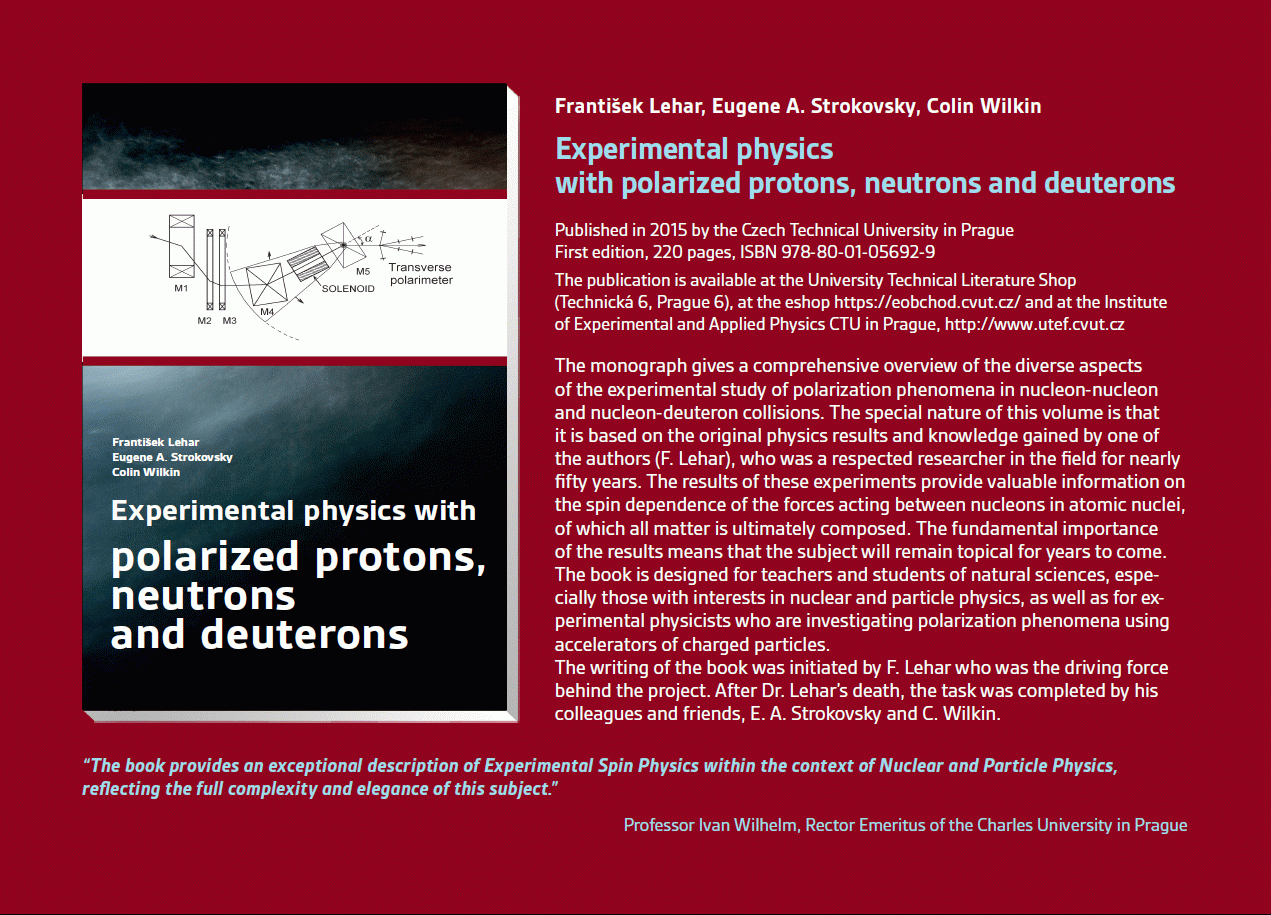 Experimental physics
with polarized protons, neutrons and deuterons
Experimental physics
with polarized protons, neutrons and deuterons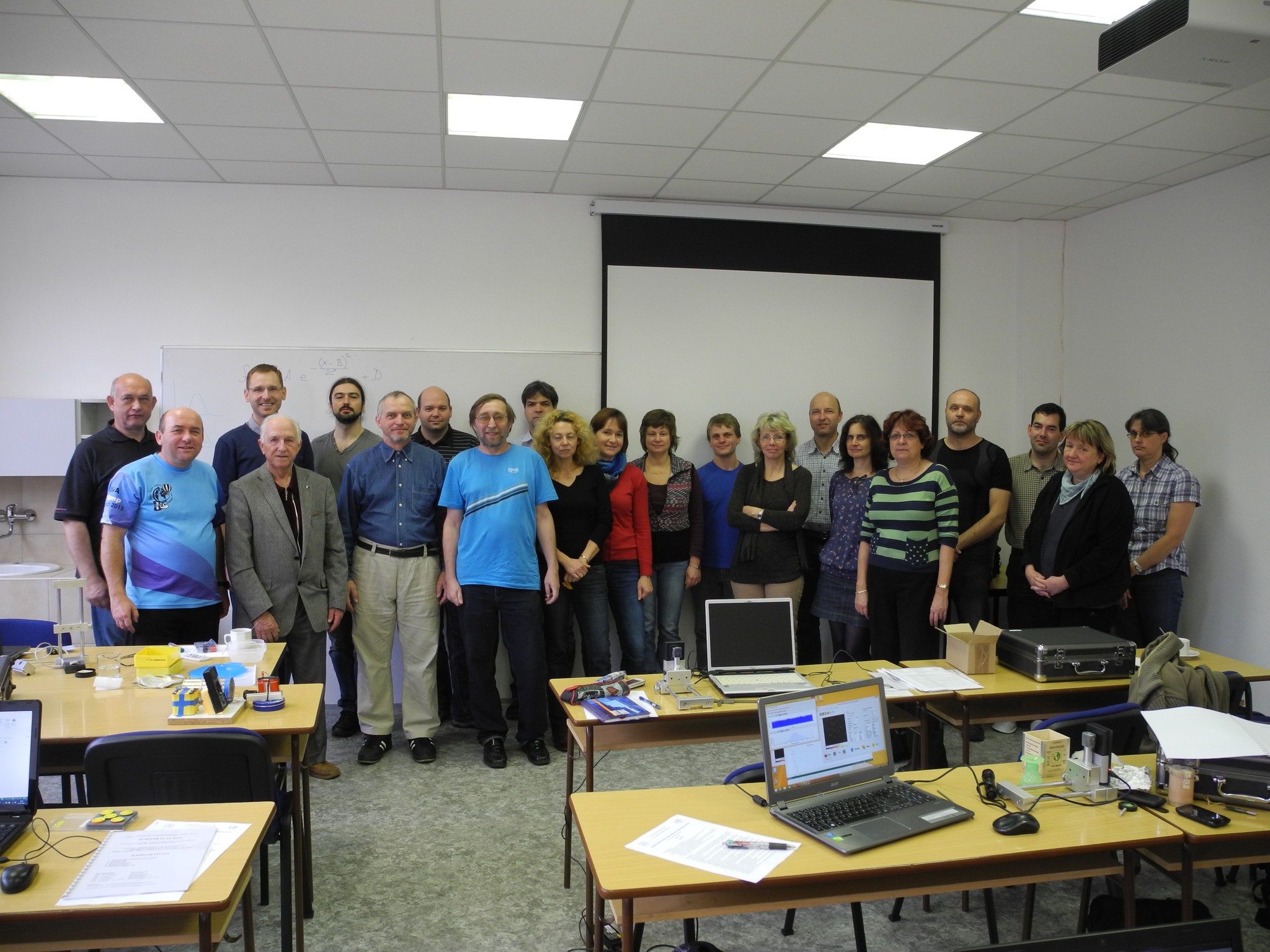 Progresivní detekční metody ve výuce subatomové a částicové fyziky
na ZŠ a SŠ
Progresivní detekční metody ve výuce subatomové a částicové fyziky
na ZŠ a SŠ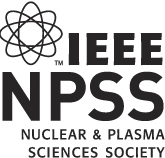 NSS MIC IEEE Conference
NSS MIC IEEE Conference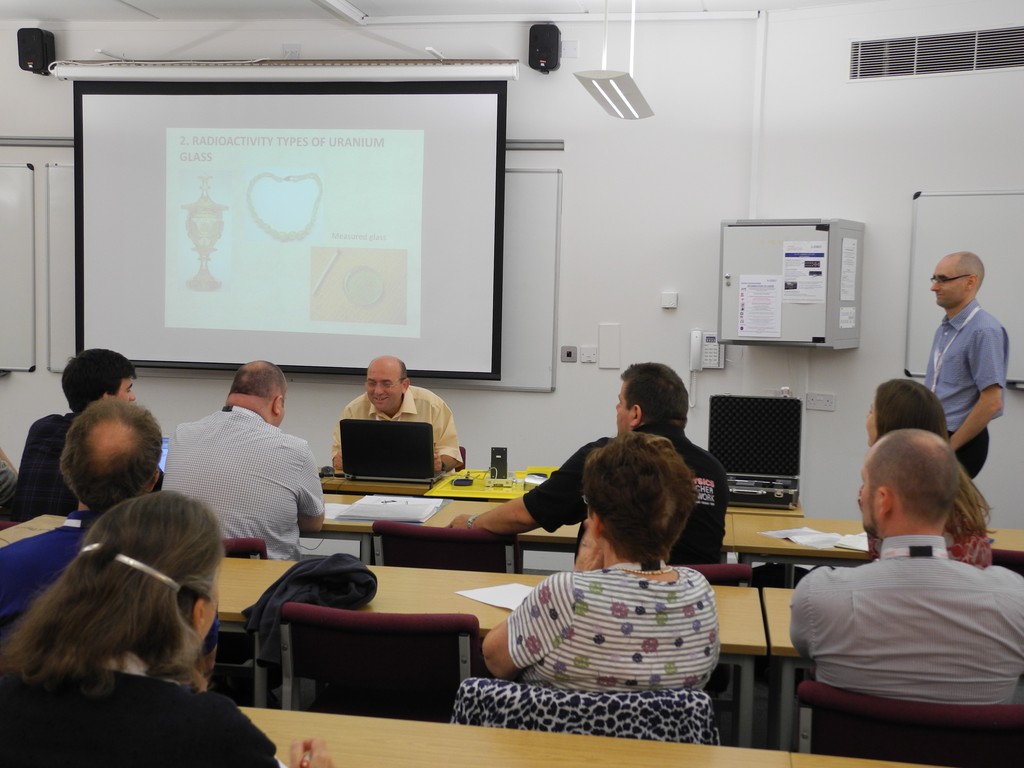 Konference SEPnet, CERN@school
Konference SEPnet, CERN@school Lovci záhad - spolupráce ČT a ÚTEF
Lovci záhad - spolupráce ČT a ÚTEF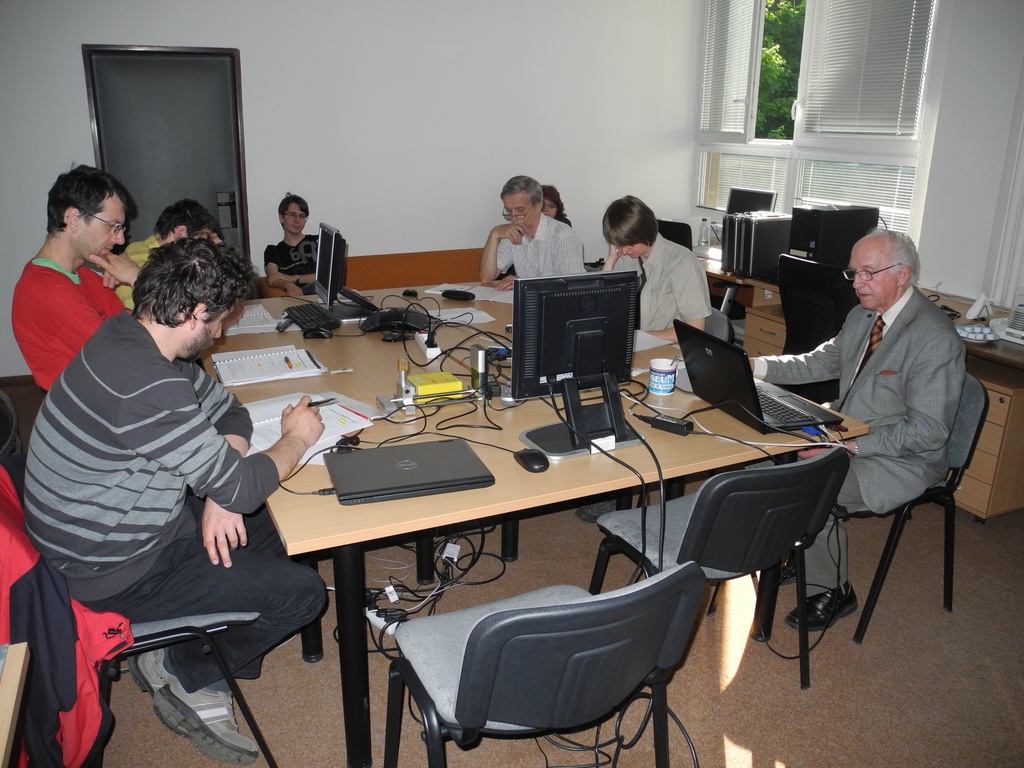 Progresivní detekční metody ve výuce subatomové a částicové fyziky na ZŠ a SŠ
Progresivní detekční metody ve výuce subatomové a částicové fyziky na ZŠ a SŠ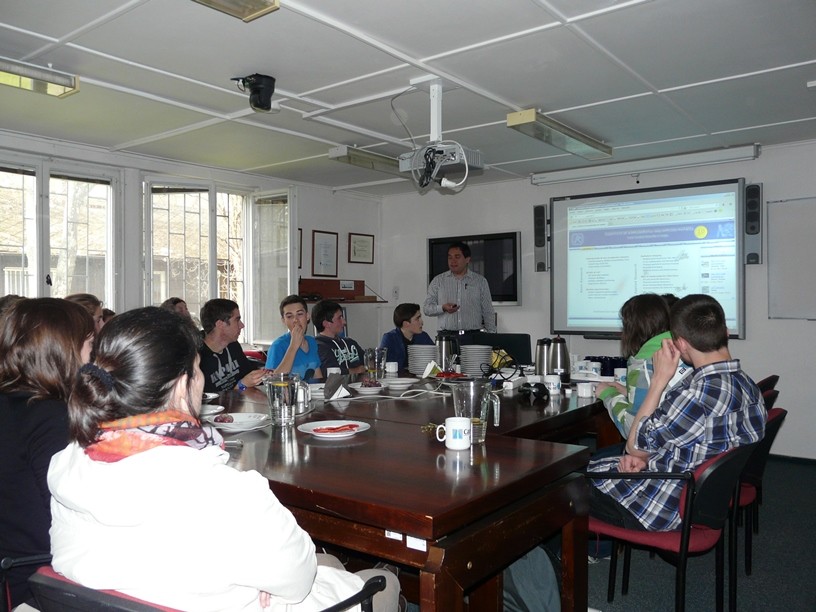 Návštěva v rámci projektu „Listening to the universe by detection cosmic rays“
Návštěva v rámci projektu „Listening to the universe by detection cosmic rays“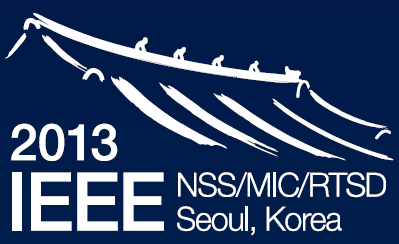 NSS MIC IEEE Conference
NSS MIC IEEE Conference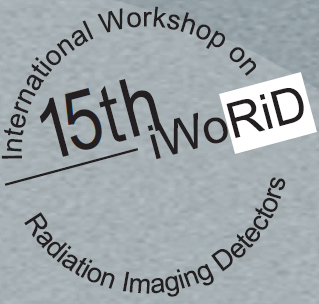 15thIWORID
15thIWORID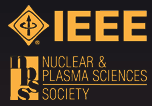 NSS MIC IEEE Conference
NSS MIC IEEE Conference